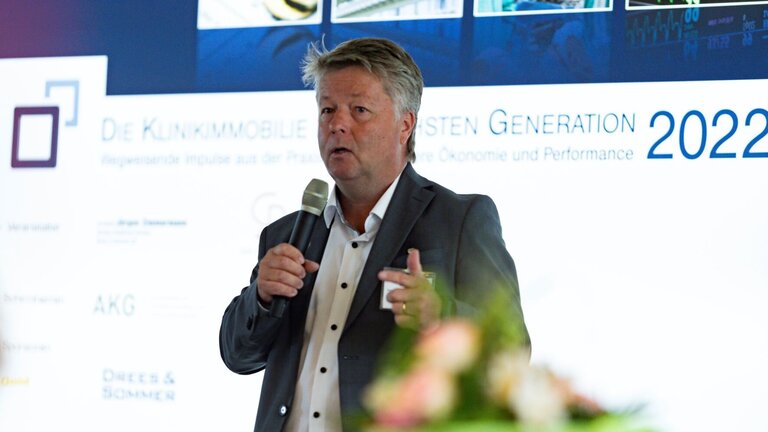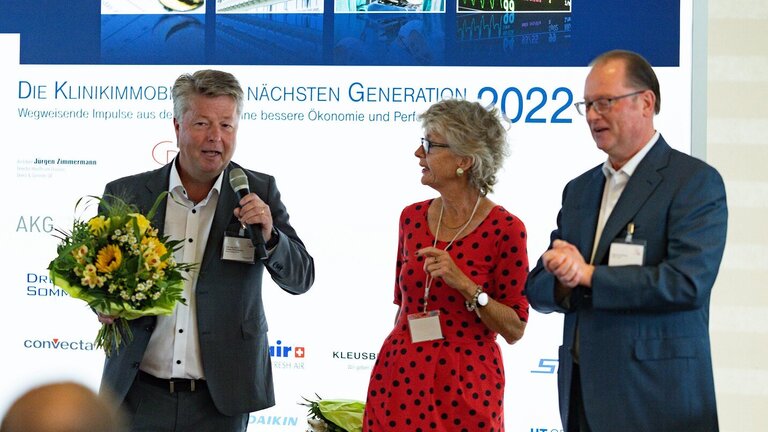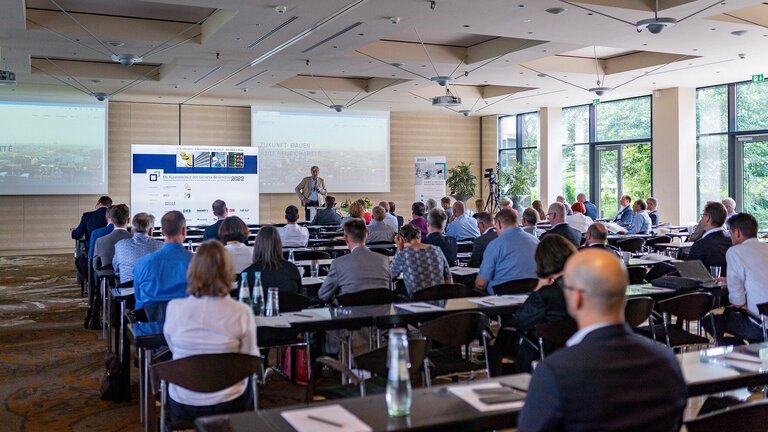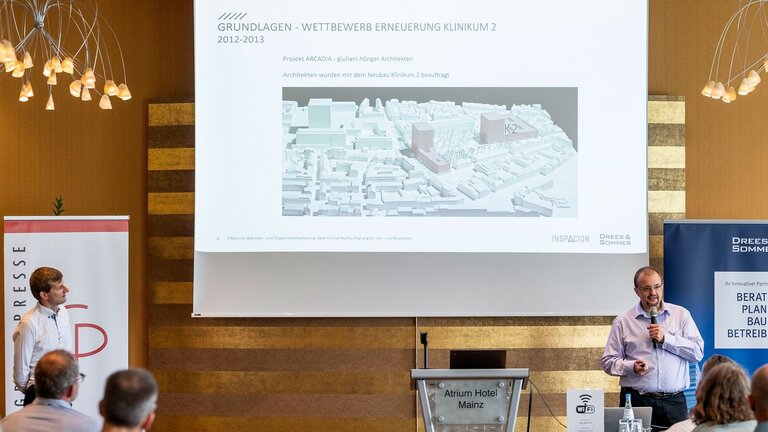Mainz, Germany, July 8, 2022. How many hospitals does the country need, and what is affordable? It is evident from the experience of recent years that Germany’s hospital sector has to adapt urgently to cater for current needs and changed conditions. Standards are rising, particularly in relation to the quality of care. The focus is on patients, now more than ever. However, to manage the necessary structural change, it is not only necessary to adjust the legal basis for hospital financing – there is also an urgent need to transform the way hospital buildings are designed and built.
This was the key topic at the congress Clinic Real Estate of the Next Generation that took place in the German city of Mainz on June 29 and 30, 2022, now in its 11th year, with discussions taking place among different panels of sector and technical experts. As usual, the two-day event was very well attended, with more than 170 participants.
While last year’s congress had to be held online owing to the pandemic, this year’s event was buzzing as people engaged in lively one-to-one conversations and stimulating discussions again. Operating companies, clients, developers, investors, project managers, designers, planning firms, architects, legal advisors and manufacturers met at the Atrium hotel in Mainz. The specialist conference was hosted by Stuttgart-based Drees & Sommer SE. Europe’s leading planning and consulting company with international reach also acted as gold sponsor of the congress. The agency Congress und Presse was in charge of organization and co-hosted the event.
One of the highlights of the conference was Matthias Christian Schmidt’s presentation of the masterplan for the Charité university hospital. The expert is responsible for large-scale project at Charité. His conclusion is that the scope of tasks for both the client and the general contractor has to be defined in future, and that a project-specific contractual structure should be developed. The masterplan for University Hospital Mainz aims to create the structures necessary for implementing the target design in the construction process in order to improve economic efficiency as well as the quality of care, as Florian Stolz of University Hospital Mainz and Lukas Schöne of LOHFERT & LOHFERT AG explained. Professor Dr. Hans-Jürgen Hennes illustrated the latest developments in the field of university medicine. His lecture was accompanied by a video, taken in the SAP Arena, on a brand new competition decision and a summary of the competition entries for the Neue Mitte campus grounds of University Hospital Mannheim.
Jürgen Zimmermann, Associate Partner at Drees & Sommer, was very pleased with the event: “With the various challenges and opportunities facing the German hospital landscape, the congress offered an important platform for stimulating discussions and conversations.“
“While in 2021 we were limited to an online-only event, Clinic Real Estate 2022 was again able to demonstrate its full strength as the most important industry get-together,“ said Martina Schütz, founder of Congress und Presse.
The virtual reality walk-through of a next-generation hospital building – developed together with the Swiss virtual reality startup Inspacion – provided an unusual interactive experience at Drees & Sommer’s booth. Dr. Volker Büche, senior consultant at Drees & Sommer and Dr. Thomas Nescher, CEO of Inspacion AG, gave a presentation on the subject. State-of-the-art technology enabled visitors to see vividly how future hospitals could look.
In the foreseeable future this innovative solution will be able to make the process of designing and constructing hospital buildings considerably more effective and structured.



